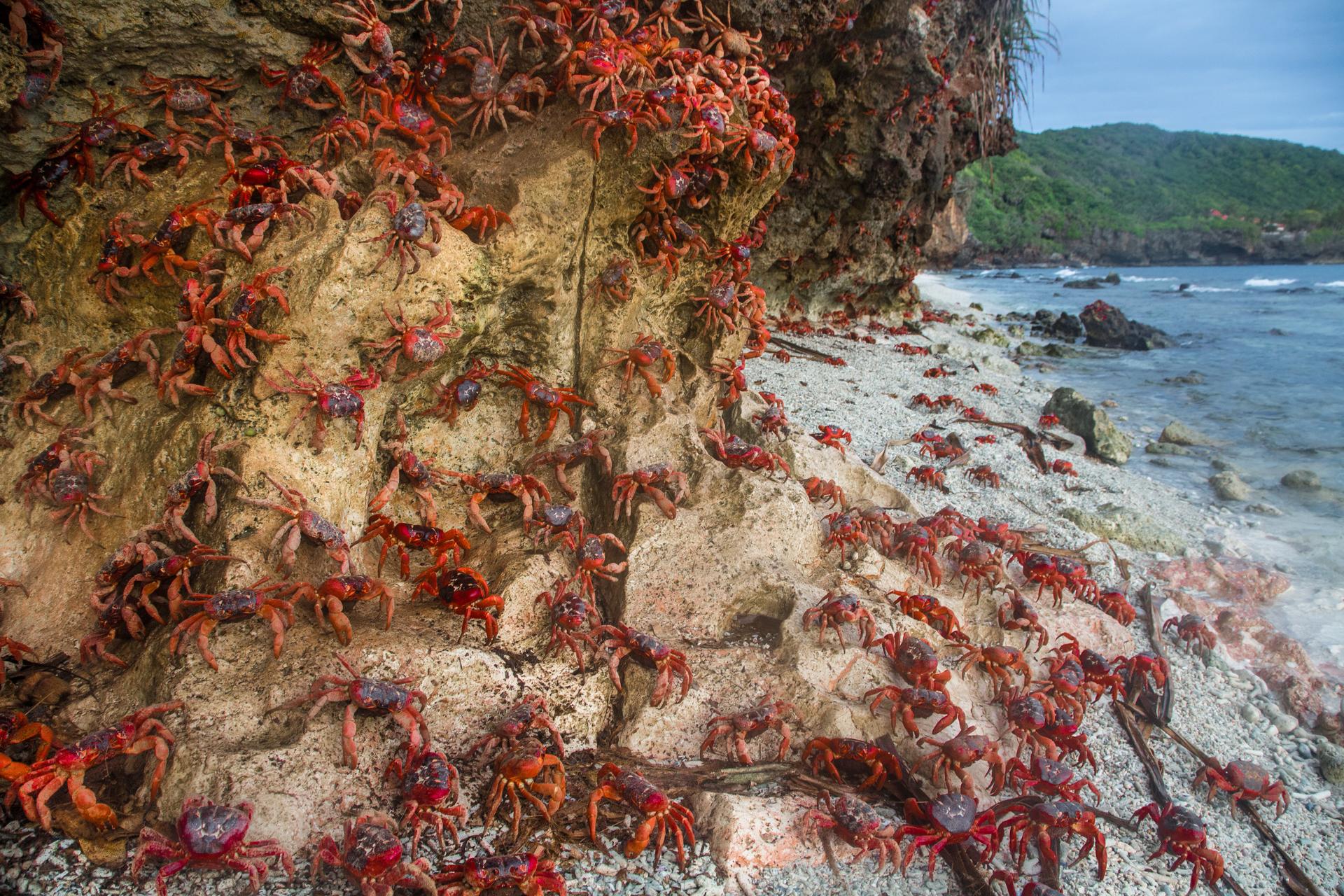Christmas Island🇨🇽

Christmas Island is a territory of Australia located in the Indian Ocean. It's named for its discovery on Christmas Day in 1643. The island is known globally for its annual migration of approximately 50 million red crabs who travel from the jungle to spawn in the sea. This event has become a tourist attraction in its own right. The island is also home to a variety of endemic species, especially birds and bats. The key attractions include Christmas Island National Park, Bloodfalls, and the annual Crab Migration, making it a unique place to visit.
⚠️Things you should avoid⚠️
- Disturbing the annual red crab migration - it's a significant environmental event and disruptions could impact this unique species.
- Engaging in illegal fishing or poaching.
- Ignoring cyclone warnings, which can occur during the wet season.
- Removing flora or fauna from the national park.
- Driving without a valid driver's license.
- Littering - due to the island's rich biodiversity, littering can have a significant impact on the local environment.
- Entering restricted areas of the national park without a permit.
- Feeding wildlife - it can alter their natural behaviour and possibly lead to harm.
- Undertaking risky behaviours near cliffs or rough seas, as the island has limited rescue resources.
- Neglecting to carry necessary medical supplies as the hospital might not have a wide range of supplies.
Overall
9
Crime 🔫
9
With its small population, crime is low on Christmas Island. There are very few incidents of serious crime. Christmas Island has no unsafe cities due to virtually having only one settlement, The Settlement, where most of the population lives.
Terrorism 💣
10
In the past, there have not been any recorded incidents of terrorism on Christmas Island. The remote island has a low risk of exposure to any terrorist activity.
War ⚔️
10
Being an Australian territory, Christmas Island has not experienced any wars or notable incidents of armed conflict.
Natural Disasters 🌊
8
Christmas Island can be subject to tropical cyclones, though major natural disasters are relatively rare. There have not been significant natural disasters in recent history.
Medical Care 🏥
7
Christmas Island Hospital serves the residents and tourists, providing a range of services. However, for serious medical conditions, medical evacuation might be required.
Tap Water Quality 💧
8
The tap water is safe to drink on Christmas Island. Water quality is regularly monitored to ensure it meets the Australian Drinking Water Guidelines.
Disease Burden 🤒
9
The risk of contracting diseases on Christmas Island is relatively low with no major outbreaks or epidemics in the recent past.
Corruption 💸
9
Corruption is not a significant issue on Christmas Island which follows Australian law and governance.
Safety for Women ♀️
9
Despite the lack of specific data, Christmas Island is generally safe for women. It is a relatively safe destination for solo female travelers.
Safety for Queer People 👬
9
As Christmas Island follows Australian law, there are protections for LGBT+ individuals. While specific data for Christmas Island is not available, there is a generally accepting and supportive atmosphere.
Censorship 📺
9
There is no significant censorship or restrictions on the press or internet access on Christmas Island.
Public Transportation 🚌
8
Public transportation is limited but generally safe. Most transportation needs are met by hiring cars due to the size of the island.
Other useful information
🔒 How safe is it?
Christmas Island is generally a safe destination. However, visitors should stay updated about any cyclone warnings during the wet season and take necessary precautions. Care should also be taken to respect the island's unique wildlife and environment.
🏰 Embassies in this Country
There are no foreign embassies on Christmas Island. The closest embassies are located in Australia, which maintains administrative control over the territory.
💉 Recommended Vaccinations
Before travelling to Christmas Island, it's recommended that you're up-to-date with routine vaccines such as MMR, diphtheria-tetanus-pertussis, varicella, and polio. Hepatitis A and Typhoid vaccinations are also recommended.
🐍 Dangerous Animals
The wildlife on Christmas Island is generally safe though visitors should avoid touching or feeding any animals, to protect both themselves and the natural behaviours of the animals.
🛂 Visa Requirements
Visitors to Christmas Island must have a valid Australian visa. Visa policies follow that of mainland Australia.
💲 Currency
The currency of Christmas Island is the Australian dollar (AUD). There are facilities to exchange currency on the Island.
💳 Credit Card Acceptance
Major credit cards are widely accepted in businesses and ATMs are available.
🧑🏭 Is it possible to work and travel in this country?
Christmas Island is not typically a work and travel destination due to its small size and limited industry.
💵 Cost of Travel and Living
The cost of travel and living on Christmas Island is moderate. Accommodation and dining options range from budget to higher-end.